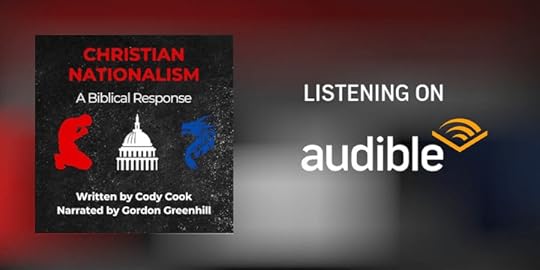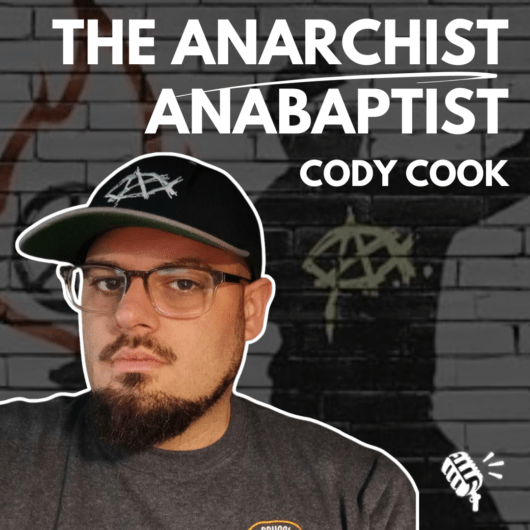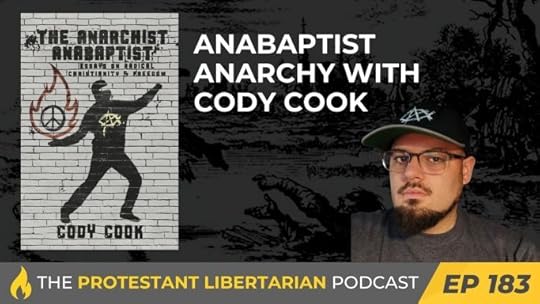Cody Cook's Blog, page 3
March 4, 2025
Going to Hell with Huckleberry Finn

In the history of banned books, The Adventures of Huckleberry Finn has made numerous appearances. At first, it predictably offended priggish and white supremacist gatekeepers who objected to its critiques of slavery and white supremacy–not to mention its use of poor grammar and vulgar words like “sweat” and “scratched.” But in recent years bans have come from other quarters–from anti-racist and progressive-minded cultural hall monitors who complain that its liberal and historically accurate use of “the n-word” makes it inappropriate for inclusion in school libraries.
While racial epithets have understandably become taboo, and while critiques of the characterization of the escaped slave Jim as being overly stereotypical carry some weight, the reason Twain’s novel remains essential is because of how he subverts the consensus of his day that white supremacy is not only reasonable, but is firmly rooted in ontological and religious soil which no person can challenge without invoking the wrath of God.
In Finn, Mark Twain crafted a story about a young white runaway of a disreputable background (Huck Finn) who befriends Jim, a runaway slave, and helps him to evade capture. As time goes on, however, Huck’s cultural indoctrination causes him to regret this subterfuge. If a slave was property, that must mean that helping one escape was akin to stealing, so wouldn’t it be a sin against God’s law? And yet, it was impossible for him to not see Jim as a fellow human being and even a friend. How could he not help him?
Twain writes of Huck’s struggle, and most importantly its resolution, in this way:
“It made me shiver. And I about made up my mind to pray, and see if I couldn’t try to quit being the kind of a boy I was and be better. So I kneeled down. But the words wouldn’t come. Why wouldn’t they? It warn’t no use to try and hide it from Him. Nor from ME, neither. I knowed very well why they wouldn’t come. It was because my heart warn’t right; it was because I warn’t square; it was because I was playing double. I was letting ON to give up sin, but away inside of me I was holding on to the biggest one of all. I was trying to make my mouth SAY I would do the right thing and the clean thing, and go and write to that nigger’s owner and tell where he was; but deep down in me I knowed it was a lie, and He knowed it. You can’t pray a lie—I found that out… I was a-trembling, because I’d got to decide, forever, betwixt two things, and I knowed it. I studied a minute, sort of holding my breath, and then says to myself: ‘All right then, I’ll go to hell’… It was awful thoughts and awful words, but they was said. And I let them stay said; and never thought no more about reforming” (Mark Twain, The Adventures of Huckleberry Finn, Ch. 31).
The tragedy is that Finn, despite his limited education and status as an uncultured outsider, was completely in the right for seeing Jim as a brother and a man as opposed to a person of inferior humanity. Yet he had been misled by those who were supposed to guide his spiritual development into believing that doing the right thing made him an enemy of God. In short, he had been taught that he had to choose between doing the right thing–following the conscience that God gave Him–and being a Christian.
Despite his apparent profession of defiant opposition to God, it was not Huckleberry Finn but his blind guides who were guilty of sin. The words of Jesus, often appealed to as a warning to those who physically or spiritual harm children, come to mind:
“If anyone causes one of these little ones—those who believe in me—to stumble, it would be better for them to have a large millstone hung around their neck and to be drowned in the depths of the sea” (Matthew 18:5, NIV).
The early Anabaptist leader and theologian Pilgram Marpeck likewise wrote of those who invent divine commands, calling them murderers, wounders, and burdeners of innocent consciences. The man who does this, “robs God of His honor, murders souls, and tramples the Son of God with his feet.”
C. S. Lewis provided another way of framing Huck’s moral paradox in his final Narnia book The Last Battle through the character of Emeth. Emeth is a Calormene who worships the false and evil god Tash, but in all goodness and sincerity. For this service, the lion Aslan (Narnia’s Christ) tells him, “all the service thou hast done to Tash, I account as service done to me.”
But this is no syncretistic, all-roads-lead-to-heaven inclusivism. Aslan clarifies:
“Not because [Tash] and I are one, but because we are opposites, I take to me the services which thou hast done to him. For I and he are of such different kinds that no service which is vile can be done to me, and none which is not vile can be done to him.”
In other words, the proper worship of God is not determined merely by the use of the right name (as if one were casting a magic spell), but by reverence to the Being whose attributes and deeds we rightly recognize as God’s. That reverence for goodness is an act of worship. The other side of this truth is that devotion to evil in the name of God is no act of worship at all.
What lessons can be applied from the paradox of Huckleberry Finn? What is our responsibility as parents, teachers, and influencers of children? How should we teach them to follow Jesus?
The first lesson is…
1. The things that some people tell you about right and wrong–even people who are in authority and seem to be knowledgeable–are not always true.
Of course, the children in our lives will inevitably trust us to steer them well. This makes our responsibility to grow in wisdom and knowledge that much greater. Nevertheless, we must point not to ourselves or human authorities, but to Jesus as our guide. This brings us to our second lesson.
We must…
2. Be willing to follow Jesus even if society will try to make us pay a price for doing so.
Jesus calls us to pick up our cross, follow Him, and die. In other words, following Jesus isn’t always going to be easy. There will be those who will try to make us pay a cost for obeying Jesus when it conflicts with the current wisdom of the world. We should be happy to pay it when the bill comes.
Finally, in our capacity as finite beings who rely on God’s grace, we ought always to…
3. Leave space for others to follow Jesus in ways that might look different from our own walk.
This guideline is not absolute. Christians must draw boundary lines to guide Christian ethics, but we must do so in humility and with trembling. These lines must be drawn in such a way that we leave as much room as possible for someone to be considered a brother in Christ while still being firm about any issue which clearly demarcates obedience to Jesus from disobedience. Certain behaviors will require us to make distinctions in order to protect the body of Christ, but we cannot forget Christ’s warning that those who judge others will also be judged with the same rigor and mercy with which they judged.
Huckleberry Finn’s decision may not look particularly pious on the surface. But it reflects a holy desire–one that the Apostle Paul expressed when he wrote, “I could wish that I myself were cursed and cut off from Christ for the sake of my people, those of my own race” (Romans 9:3, NIV). This self-sacrificing desire is supremely Christian. Paul tells us so in Galatians 5:14 when he exhorts his readers that “the entire law is fulfilled in keeping this one command: ‘Love your neighbor as yourself’” (NIV). This love is the fruit of the Holy Spirit, and no one will go to hell for exercising it.
February 27, 2025
Christian Nationalism: A Biblical Response is now available as an Audible audiobook!
February 20, 2025
PODCAST: The Anarchist Anabaptist (Theology in the Raw)
I was honored to be a guest on Preston Sprinkle’s Theology in the Raw podcast to talk about my new book The Anarchist Anabaptist and what anarchism has meant historically.
Listen/watch here:
https://theologyintheraw.com/podcast/the-anarchist-anabaptist-cody-cook/
February 18, 2025
PODCAST: Anabaptist Anarchy (Protestant Libertarian Podcast)
I was on The Protestant Libertarian Podcast to discuss my latest book The Anarchist Anabaptist and what separated the Anabaptists from the Protestant Reformation.
Listen here:
https://libertarianchristians.com/episode/ep-183-anabaptist-anarchy-with-cody-cook/
February 17, 2025
The Document That Explains Why Nationalists Keep Trying To Ban Porn (Reason)
For the second year in a row, Oklahoma Republican Sen. Dusty Deevers has introduced a bill that would criminalize pornography in the state. If passed, S.B. 593 would create “criminal penalties of up to 10 years in prison for production, distribution, or possession” of consensual adult pornographic material and “10-to-30-year criminal penalties for organized pornography trafficking.“
The bill died last session after being assigned to, and ignored by, the Judiciary Committee, but its language was broad enough to criminalize the illustrator of erotic drawings or “even someone who simply sent someone who is not their spouse a sexually charged photo,” as Reason’s Elizabeth Nolan Brown reported.
February 15, 2025
PODCAST: Cody Cook and the Anarchist Anabaptist (The Fourth Way)
I had the privilege of talking with Derek Kreider of The Fourth Way podcast about my new book The Anarchist Anabaptist, and whether capitalism can actually make a better world.
Click here to listen:
https://thefourthway.transistor.fm/episodes/interview-w-cody-cook
February 13, 2025
PODCAST: Anabaptist Lessons on Church & State (The Bad Roman)

Are you tired of feeling like your faith has been watered down by political allegiances and cultural compromises? Do you long for a Christianity that truly embodies the radical teachings of Jesus? In this eye-opening episode of the Bad Roman Podcast, you’ll dive deep into the world of Anabaptism with author and researcher Cody Cook. Get ready to challenge your assumptions and rediscover what it truly means to follow Christ in a world that often seems at odds with His teachings.
The Anabaptist movement emerged in the 16th century as a response to what many saw as a compromised Christianity. While the Protestant Reformation challenged some aspects of the Catholic Church, the Anabaptists took things further, seeking to return to the radical roots of the early church.
Listen here:
https://www.thebadroman.com/show-notes/episode-128
Anabaptist Lessons on Church & State (The Bad Roman)

Are you tired of feeling like your faith has been watered down by political allegiances and cultural compromises? Do you long for a Christianity that truly embodies the radical teachings of Jesus? In this eye-opening episode of the Bad Roman Podcast, you’ll dive deep into the world of Anabaptism with author and researcher Cody Cook. Get ready to challenge your assumptions and rediscover what it truly means to follow Christ in a world that often seems at odds with His teachings.
The Anabaptist movement emerged in the 16th century as a response to what many saw as a compromised Christianity. While the Protestant Reformation challenged some aspects of the Catholic Church, the Anabaptists took things further, seeking to return to the radical roots of the early church.
Listen here:
https://www.thebadroman.com/show-notes/episode-128
February 11, 2025
Edward Hicks: Pacifist Patriot (Plough)
Edward Hicks was an artist, a Quaker, a pacifist, and a patriot. This might seem an unlikely combination. While some artists are patriotic, the creative personality is usually opposed to the groupthink that marks patriotic fervor. And can a pacifist be a true patriot? During the American Revolution, you were expected to be either loyal to Britain or a rebel who supported the revolution. The Quakers, who were opposed to war on principle, were considered by many to be unacceptably neutral. In this milieu, Hicks was a perplexing contradiction. How was he able to reconcile his pacifist convictions with his commitment to the foundational American ideals of freedom and liberty, which others had established through revolution and violence?
Is J. D. Vance Right About “Ordered Loves?” (LCI)
Those with even a surface knowledge of the New Testament might have been confused by Vance’s theological musings about a hierarchy of loves. Didn’t Jesus tell the story of the Good Samaritan in order to demonstrate that the “neighbor” we’re asked to love isn’t necessarily someone you know or even share an ethnicity with, but that God calls us to do good to anyone we can? Wasn’t the Christian church supposed to be a new family of differing economic statuses and ethnicities? Didn’t Paul pressure gentile Christians in Corinth to give beyond their means to help Jewish Christians in Jerusalem? There’s considerable evidence that the early church was interested in expanding the boundaries of love, not building walls around it.









